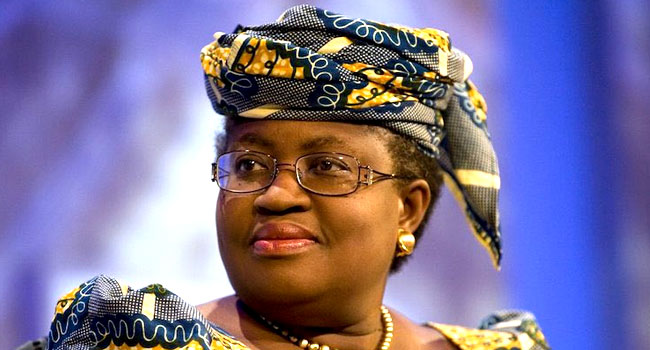External Reserves Buckle Below CBN’s $42 Billion Target
By EHIME ALEX
Nigeria’s foreign reserves are hovering below the threshold the Central Bank of Nigeria (CBN) sets to achieve in mid-2022.
Available data from the apex bank, as of June 9, shows external reserves buckling at $38.52 billion.
The CBN Governor, Godwin Emefiele, laid it on thick that Nigeria’s foreign reserves would surpass $42 billion by the middle of this year.
At the France-Nigeria Security and Economic Summit in Paris, France, held in November last year, Emefiele assured Nigerians and the international community of CBN’s determination to grow the reserves to exceed the $42 billion mark. The last time external reserves hit $42.05 billion was on September 26, 2019.
“This is due to the sustained increase in crude oil price, the impact of Eurobond Issuance, and the stable exchange rate condition,” he said.
Mid-2022 is here, external reserves have dropped far behind the figure it was in November 2021 when Emefiele made the fulsome statement about his administration’s ability to pump up the reserves.
As of November 30, 2021, gross external reserves were at $41.19 billion. When compared to the figure ($38.52) as of June 9, the reserves have dropped by 6.48 per cent or $2.67 billion.
Despite the shrinking foreign reserves, checks by insidebusiness.ng showed the price of crude oil jumped significantly by 64.38 per cent since November last year.
Crude oil price was about $81.05 in November 2021 and has risen to $133.23 as of June 7.
On Thursday, June 9, OPEC’s daily basket price stood at $123.21 a barrel. Nigeria’s Bonny Light is a part of the OPEC reference basket of crudes.
Crude oil prices have been on the increase, especially since the Russian-Ukraine war began, which has brought a considerable reduction in oil supply in the global market.
Analysts say oil prices can help to determine the Nigerian economic performance as it has a significant effect on the country’s foreign exchange earnings.
It is the basis upon which government budgeting, revenue distribution, and capital allocations are determined.
An increase in oil prices should lead to an increase in foreign exchange earnings and a decline in oil prices should lead to shortened revenues in dollars, analysts asserted. But, the foreign reserves figures at CBN’s table beat their expectations.
The CBN also looks to manage stable exchange rate conditions to shore up the reserves. It had in May last year moved into a flexible exchange rate, adopting the Nigerian Autonomous Foreign Exchange(NAFEX) as the official rate for government transactions, which hovers around N410 and N411.
As of Thursday, May 9, the rate still stands at N415.63 to a dollar. This could not have weighed on the depleting foreign reserves, experts said.
The new official rate is expected to help the Nigerian economic recovery as well as boost investor confidence, which has been lacking for some time.
Trading at the official NAFEX window – that is the Investors and Exporters(I&E) window – is the market trading segment for investors, exporters and end-users that allows for foreign exchange trades to be made at exchange rates determined based on prevailing market circumstances
CBN also looks to Eurobond Issuance to rev up the reserves and meet its set target of $42 billion by mid-2022.
Nigeria priced a $1.25 billion 7-year Eurobond issue at 8.38 per cent in the International Capital Market(ICM), in March this year. The offer was launched at an Initial Price, the Debt Management Office(DMO) revealed.
The debt office noted that the proceeds of the Eurobond are to “contribute directly and in full to the level of Nigeria’s External Reserves.”
But Nigeria is not depending on these proceeds to help fund the country’s costly petrol subsidies amid the rising price of crude oil, the Minister of Finance, Zainab Ahmed, told Reuters.
According to the minister, Nigeria will rather tap €2 billion ($2.2 billion) of the money the government raised in a Eurobond sale last year. It will also target more local borrowing in 2022 to fund the petrol subsidies. This should make the reserves swell even more.
It should be noted that crude theft and vandalism in the Niger Delta are disrupting oil production and hindering Nigeria’s capacity to meet up with the OPEC oil quota.
While oil prices are soaring, Nigeria printed a marked improvement in foreign trade in Q1 2022. Total export rose favourably by 23.13 per cent to N7.10 trillion compared to N5.77 trillion in Q4 2021.
This is according to the National Bureau of Statistics(NBS) latest report. It shows export trade more than doubled by 137.88 per cent of the value (N2.98 trillion) recorded in Q1 2021.
While total imports increased by 21.04 per cent in Q1 2022 as against the value of N4.88 trillion reported in Q1 2021, they decreased by 0.67 per cent to N5.94 trillion in Q4 2021.
Nigeria’s total debt stock has risen to N41.60 trillion in Q1 2022, from N39.56 trillion in Q4 2021.
The current debt profile, according to the debt office, covers the total domestic and external borrowings of the federal and state governments, including the Federal Capital Territory(FCT).
It also includes new domestic borrowing by the government to partly finance the 2022 budget deficit and the $1.25 billion Eurobond issued in March as well as disbursements by multilateral and bilateral lenders.
CBN has rarely explained the reasons behind the bleeding of external reserves. it only alluded to the falling state of the reserves, at its last Monetary Policy Committee(MPC) meeting.
The CBN Director of Corporate Communications, Osita Nwanisobi, did not reply to the WhatsApp message and reminders sent to him on what the apex bank is doing to grow the reserves. When called, he promised to respond via the WhatsApp message but never did as at the time of filing this report.
However, analysts at FBNQuest pointed to several reasons why Nigeria’s foreign reserves are on a southwards movement.
External reserves are declining due to the exit of Foreign Portfolio Investors(FPIs), the analysts stated in a report. It is also dropping as a result of coupon payments (adjusted for $150 million in May) on Nigeria’s sovereign Eurobonds.
Other reasons are debt service costs and a possible increase in the CBN’s interventions at its multiple windows, the analysts explained.
A recent NBS report shows the total value of the foreign investment in Nigeria declined on a quarter-on-quarter basis by 28.1 per cent to $1.6 billion in Q1 2022, from $2.2 billion in Q4 2021.
It further reveals that on a year-on-year basis, capital importation declined by 17.5 per cent from $1.9 billion in Q1 2021.
Insidebusiness. ng




